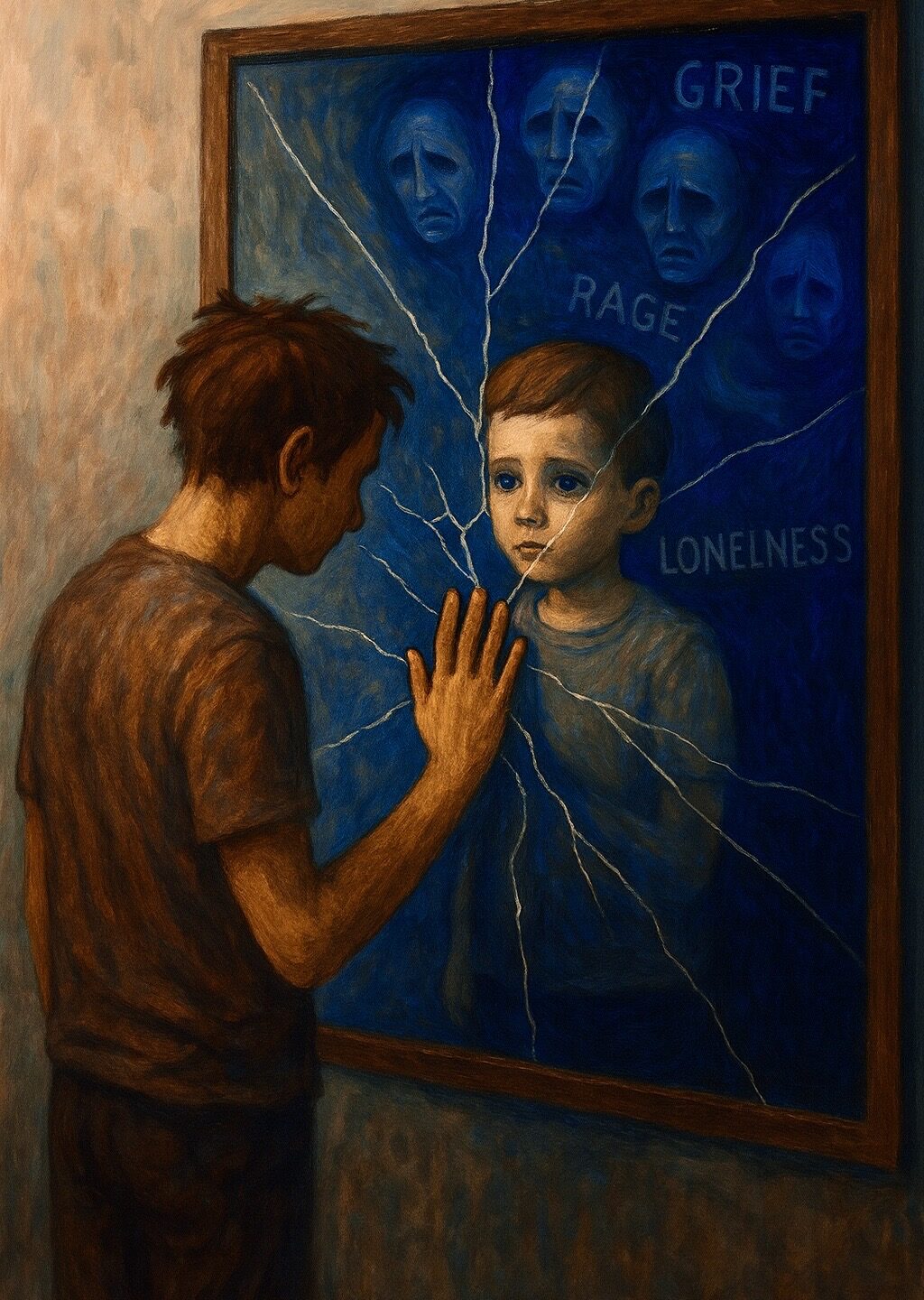“The cure for pain is in the pain.”
Rumi
This brief 6-minute video shares my perspective on the myth of addiction—and offers a path toward healing that challenges conventional thinking:
When I was 23-years old, I asked my 48-year old father that hadn’t had a drink of alcohol for a month how much was he drinking a day before he quit His answer – “A fifth or more of vodka and I drink lots of beer. I had to hid the vodka smell”. He died the following year.
Back then I believed in the medical model of addiction – “ It’s a chemical that hijacks the mind” or that “alcoholism is a disease”. I don’t anymore!
It wasn’t until I turned 51-years old that I uncovered the root of my father’s drinking—it wasn’t because he had been in the US Navy for 19- years! – it was the trauma buried beneath decades of silence. My father most likely had been sexually molested by his own father. So had his brother, his sisters, and his brother-in-law. And me.
See: https://clintmatheny.com/my-childhood-repressed-trauma-how-clean-language-therapy-helped-me/
For decades, we’ve been told two medical myths – that addiction is a chemical hijacking — a substance seizes the brain and refuses to let go.
Until 2022, most of us were told that “clinical depression” was caused by a “chemical imbalance” – a claim never proven by any laboratory test.
But what if these stories have a deeper truth? Did “Big Pharma” create these myths? I don’t subscribe to the traditional addiction model – at least not the way it’s usually framed. I believe people turn to drugs, alcohol, nicotine, or compulsive behaviors like gambling or overeating for one core reason:
to escape a feeling or feelings they cannot bear to feel.
The Emotional Root
Many humans carry emotional states that feel intolerable — shame, grief, anxiety, loneliness, fear. When those feelings surface and we lack the tools to cope, we reach for something outside ourselves to push them down. The drug — or drink, or pill— isn’t the enemy. It’s a makeshift solution. Temporary, yes. But it works… until it doesn’t.
Over time, the we learn to associate the substance or behavior with relief. It becomes a habit. Not because it has magical power, but because the pain beneath it remains unresolved.
The Two Withdrawals
When someone chooses to stop using, they don’t face one withdrawal — they face two.
1. Physical Withdrawal
There is the biological layer.
The body, accustomed to the drug’s influence, reacts when it’s gone. The nervous system flares. Shaking, sweating, aching – the body protests as it detoxes. Some prescription drugs require an extremely slow taper, especially SSRIs (sometimes over months or years) because of the severe discomfort caused by withdrawal.
This is what most people think of as “withdrawal.” And yes, it’s real. It’s miserable. But it’s only the surface layer.
2. Emotional Withdrawal
Once the chemical fog lifts, the deeper withdrawal begins – the return of the very emotions the drug was numbing.
Shame. Rage. Grief. Fear. Loneliness. They rush back, raw and unfiltered. This is the moment most people relapse – not because they’re “hooked” on asubstance, but because they haven’t yet learned how to feel what’s underneath.
They weren’t addicted to the drug.
They were addicted to the escape from themselves.
The Real Question
When someone says, “I can’t stop,” what they’re often saying is: “There’s something inside me I can’t bear to feel.”
So therapists instead of asking, “Why can’t you quit?” – a question that fuels shame – we should ask: “Where is that feeling you’re trying not to feel? Is it inside or outside of your body?”
Any of the Memory Reconsolidation modalities listed on this blog are effective in healing these emotions. That’s where healing begins and we can’t heal what we can’t feel!
See: https://clintmatheny.com/rtm-1/
True Recovery
When a person is gently guided to feel the emotion they’ve been avoiding – through effective therapy (memory reconsolidation) – the compulsion fades. They no longer need the chemical, because they’ve finally faced what the chemical was shielding them from.
Recovery isn’t a battle against addiction. It’s a reunion with the emotional self that addiction tried to silence.
See Next Post Below on : Billions Wasted on Drug/Alcohol Rehab
Clint77090@Gmail.Com

